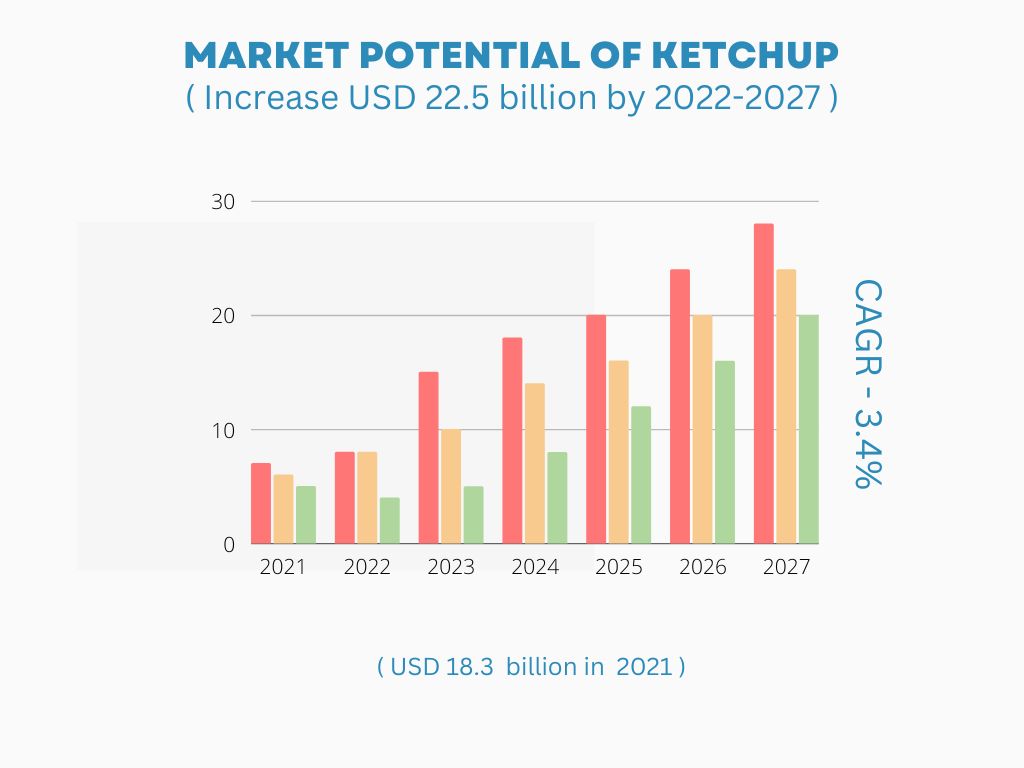Introduction
Project report for ketchup is as follows.
Ketchup, also known as catsup, is a table condiment with a sour and sweet flavour. Ketchup is highly seasoned with salt, pepper and spices, then boiled into a thick liquid and strained through a sieve creating a smooth, thick sauce.
Ketchup lowers low-density lipoprotein, cholesterol, also known as “bad cholesterol.” Ketchup can actually help you lower your bad cholesterol levels by 6% to 13%.
Tomato ketchup is high in Vitamin C and A, both of which are essential for good vision. Tomato ketchup also helps to strengthen the immune system. Despite its high sugar and salt content, tomato ketchup enhances the flavour of any dish.
Tomato ketchup is used as a salad dressing by professional chefs. This includes Russian salad, Thousand Island salad, and other similar dishes. Sweet and Sour Sauces- Ketchup is a key ingredient in many sweet and sour recipes.
These sauces are used to create delectable sweet and sour chicken and paneer dishes. This ketchup is cooked at a low temperature to bring out the flavours of all of its ingredients.

Use tomato ketchup instead of a chemical cleaner to keep your copper and cutlery clean because it is acidic. You should put all of your silverware in a dish with tomato ketchup and let it sit for ten minutes.
After that, rinse and polish them for a tidy appearance! Cleaning cast-iron cookware is notoriously difficult. Simply cover them with ketchup and leave them alone for around 15 minutes to get rid of the rust. Later, you can scrape it with a wire brush. Because of its acidic composition, tomato ketchup aids in the dissolution of rust.
According to a 2002 American research of 47,000 men, eating tomato sauce two or more times a week lowers a man’s risk of acquiring prostate cancer by about 20%.
Increased demand for organic and healthier tomato ketchup made with natural ingredients is a result of the general public’s growing health consciousness.
Moving quickly toward domestic manufacturers that make ketchup from tomatoes based on non-genetically modified organisms (non-GMO), insecticide-free ingredients.
Additionally, tomato concentrate, which is a mixture of red, ripe organic tomatoes, distilled vinegar, and naturally-occurring sugar, salt, onion powder, spices, and flavourings, is used to make organic tomato ketchup.
Because they don’t contain any synthetic chemicals or preservatives, these variations are more nutrient-dense and environmentally friendly.
Market Potential Of Ketchup
The value of the worldwide tomato ketchup market in 2021 was US$18.3 billion. From 2022 to 2027, the market will expand at a CAGR of 3.4%, reaching US$ 22.5 billion.
Tomato ketchup, also referred to as table sauce, is a cold condiment that goes well with both hot and cold foods. It is created from ripe red tomatoes.
It is usually used with snacks and appetisers to enhance the flavour of the dish and has a flavour that is both sweet and acidic.
To produce tomato ketchup, ripe blanched tomatoes are mixed with vinegar, sugar, a variety of seasonings, and herbs. The vinegar acts as a preservative, while the sugar helps to balance the sauce’s tanginess.
Onion, allspice, coriander, clove, cumin, garlic, mustard, salt, and various natural and artificial sweeteners are also added to ketchup to enhance the final product’s flavour.

In homes, restaurants, cafés, and quick-serving restaurants (QSRs), it is frequently offered on the side with sandwiches, burgers, fries, and grilled or fried meat. It is also used as a base sauce for different curries and soups.
It enhances the dish’s overall flavour and consistency and is a rich source of lycopene, vitamins, and other nutrients, all of which have a number of health advantages.
Currently, pouches, plastic, and glass bottles are used to store and distribute the regular and flavoured varieties of tomato ketchup.
The global food and beverage industry’s notable expansion also contributes to the rising demand for tomato ketchup. There are many different multi-cuisine cuisines available at hotels, cafes, and quick-serving restaurant (QSR) chains that go well with tomato ketchup.
The flavour profile of the dish is additionally improved by the addition of flavoured tomato ketchup, such as sweet and spicy, chilli, barbecue, chipotle, curry, garlic, olive, and jalapeño, to provide guests with distinctive culinary experiences.
Project Report Sample On Ketchup
Need Help?
Create 100% Bankable Project Report
